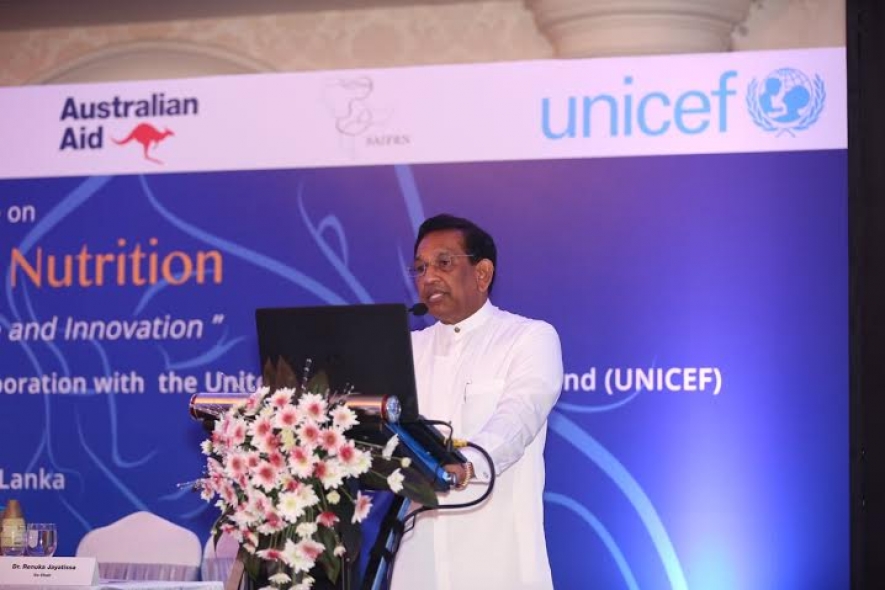The conference under the theme ‘Effective Delivery through Evidence and Innovation’, is jointly organized by South Asia Infant Feeding Research Network (SAIFRN) and the United Nations Children’s’ Fund (UNICEF) in collaboration with the Ministry of Health, Nutrition and Indigenous Medicine, Australia’s Department of Foreign Affairs and Trade, and the University of Colombo and University of Sydney.
The International Conference on Maternal and Child Nutrition was inaugurated by the Dr. Rajitha Senaratne, the Minister of Health, Nutrition and Indigenous Medicine and the Secretary to the President Mr. P. B Abeykoon on November 23. Key officials of the Ministry of Health, Nutrition and Indigenous Medicine, UNICEF, WHO, Australian High Commission, and a large body of global academic and research organizations participated.
While 159 million children globally suffer from stunted growth, 40 per cent of these children live in South Asia. Infants, young children and women of reproductive age, represent the most nutritionally vulnerable stages of the life cycle.
“Every child has the right to proper nutrition, and proper and adequate nutrition for every child and every woman is imperative to ensure their health, their education and wellbeing, and the wellbeing of future generations. It also plays a significant role for the nation and contributes to reducing poverty, promoting social and economic development and reducing inequities said UNICEF Sri Lanka Representative, Ms. Una McCauley.
In Sri Lanka, national policies and programmes, a skilled public health work force, collaborative communities and multi-sectoral approaches are evidence of how nutrition initiatives are being scaled up to benefit women and children in the country. Nutrition has become a key development priority for the Government of Sri Lanka and the Ministry of Health, Nutrition and Indigenous Medicine, to reduce malnutrition with the support of UNICEF and other organizations.
This conference, presents a stimulating scientific platform that focuses on challenges and approaches to achieving optimum maternal and child nutrition in the developing world, including policies, innovative technologies and multi-sectoral approaches.



















